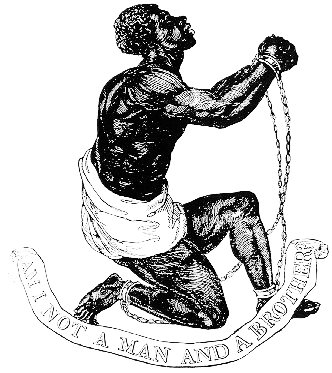Nottingham and Slavery - A Hidden History
The Nottingham Sparrow | 16.03.2007 18:48 | Analysis | History | Migration | Social Struggles
As Britain continues the 2007 celebration of 'Abolition 200', the legal end of Britain's official involvement in trans-Atlantic slave trading, and with most eyes on the main slave trade ports like Bristol and Liverpool, our local councils seem quite unconcerned about direct or indirect involvement with the profits of slavery in Notts and East Midlands, and seem happy just to leave local churches to do the soul searching. Let's ask some questions...
An easy example of Notts involvement in slavery is the well-known Mellish family, whose name is probably best associated in local minds with a Nottingham school. The family is known to have had involvement with ownership and official dealings with plantation estates in the West Indies in the 18th century. Even a cursory look at the Mellish family online archive record reveals inheritance of slave plantation estate property from the governor of the Bahamas (John Tinker), and we can read about William Mellish's official dealings with plantation monies in Jamaica as Receiver General for the Customs & Excise (he was also MP for Retford).
Photos: George Africanus: Re-dedication of former slave's grave
Links: The Mellish and Buchanan Families of Blyth and Hodsock - A Brief History | The Nottingham Sparrow, Nottingham AF | 'Slavery - the Hidden History', Bristol Radical History Group | Anti-slavery march demands reparations for slave trade

Why should our local councils care about this now? Well, apart from the Henry Mellish school association, Sir Andrew Buchanan is the county's Lord Lieutenant and Keeper of the Rolls for Nottinghamshire since 1991 (Lord-Lieutenant is the permanent local representative the Queen in that county and we are told this is a key council roll). The Buchanan family is related to the Mellish's by marriage and though this liason also owns Hodsock Priory, the place near Blyth that makes a fortune each year fleecing the public for the privilege to see its snowdrop garden. This is just one example of a current big-name tie to slave owning in the county. How much more of the fortunes in our county and city might be attributed to the profits of slavery?
Another 'missed opportunity' is to look at the East Midlands cotton spinning industry. Notts was once awash with mills beside the River Leen and elsewhere. There association with slavery is perhaps forgotten because the region's cotton industry was declining before the 1807 Slave Trade Act and the later 1833 Slavery Abolition Act. But how much of the region's prosperity of the time, before abolition and since, was due to slave grown cotton? Shouldn't this be a subject for consideration in the local Abolition 200 proceedings?
It is known that vast numbers of unrepentant slave traders and colonial plantation estate owners (many who were 'absentee landlords' living in Britain) and even abolitionists (who were often slave plantation owners themselves) made a fortune out of government compensation for cost of slaves they had to 'free', which totalled 20 million pounds in the early 1830s. Many freed slaves then continued to work in near slavery conditions for their slave masters as 'appentice' or 'indentured' labourers. What was Nottingham's and Notts' involvement with this compensation pay out and continued exploitation in the colonies?
In Bristol it is known that much of the compensation money was used to build the mills, gasworks, railways and canals which continued to exploit slave-grown cotton from the Southern states of the USA, and at the same time created misery for mill labourers - working class women, children & men - here in Britain. What level of compensation benefitted individuals in Notts and what did they do with the money?
These are the kinds of questions which could be asked, but seldom are, because the answers are likely to be uncomfortable for today's rich and powerful.
The Nottingham Sparrow
 Homepage:
http://www.afed.org.uk/nottingham/
Homepage:
http://www.afed.org.uk/nottingham/
Comments
Display the following 13 comments